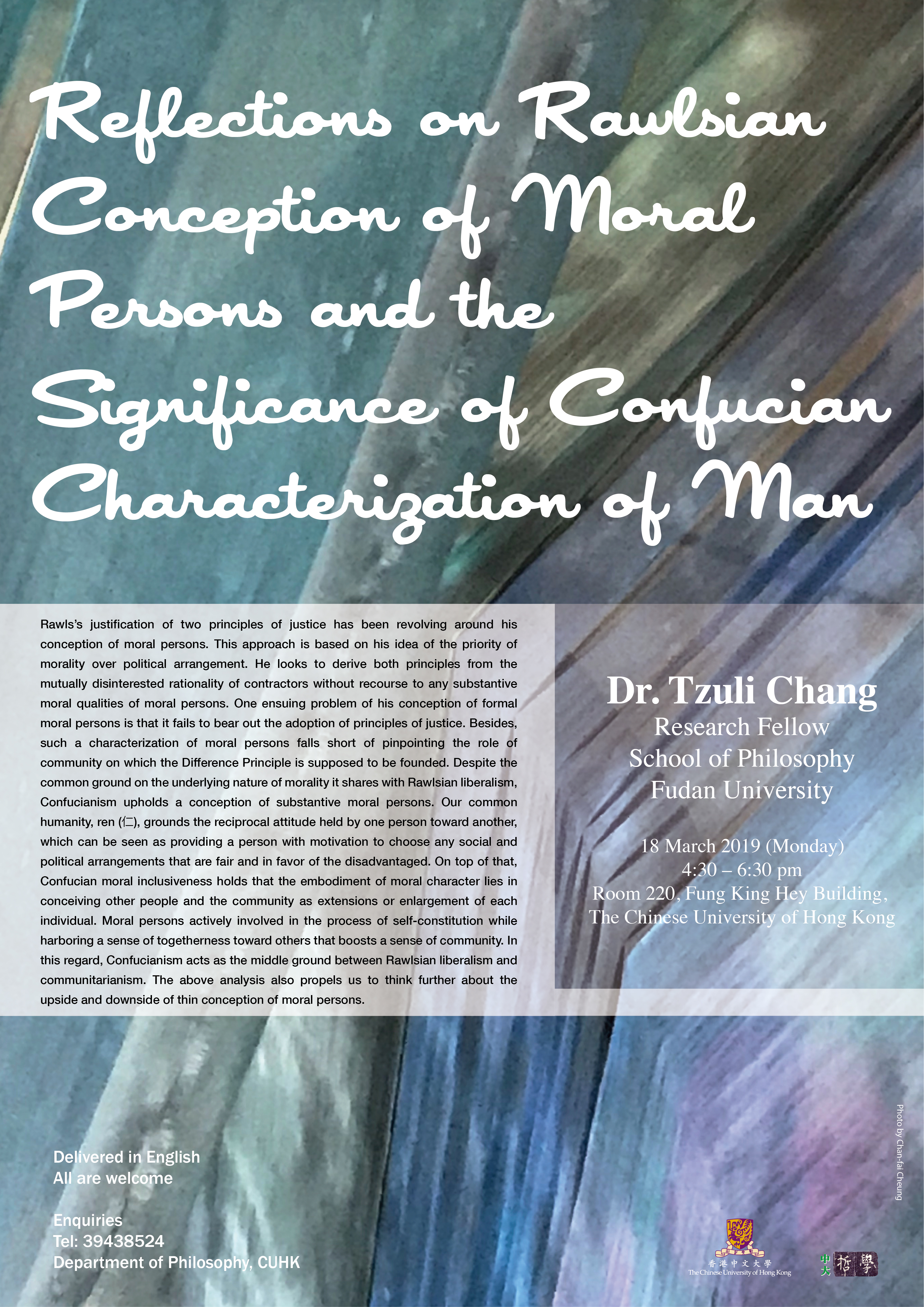Reflections on Rawlsian Conception of Moral Persons and the Significance of Confucian Characterization of Man

Dr. Tzuli Chang, Research Fellow, School of Philosophy, Fudan University |
|
4:30 – 6:30 pm |
|
香港中文大学冯景禧楼220室 |
摘要:
Rawls’s justification of two principles of justice has been revolving around his conception of moral persons. This approach is based on his idea of the priority of morality over political arrangement. He looks to derive both principles from the mutually disinterested rationality of contractors without recourse to any substantive moral qualities of moral persons. One ensuing problem of his conception of formal moral persons is that it fails to bear out the adoption of principles of justice. Besides, such a characterization of moral persons falls short of pinpointing the role of community on which the Difference Principle is supposed to be founded. Despite the common ground on the underlying nature of morality it shares with Rawlsian liberalism, Confucianism upholds a conception of substantive moral persons. Our common humanity, ren (仁), grounds the reciprocal attitude held by one person toward another, which can be seen as providing a person with motivation to choose any social and political arrangements that are fair and in favor of the disadvantaged. On top of that, Confucian moral inclusiveness holds that the embodiment of moral character lies in conceiving other people and the community as extensions or enlargement of each individual. Moral persons actively involved in the process of self-constitution while harboring a sense of togetherness toward others that boosts a sense of community. In this regard, Confucianism acts as the middle ground between Rawlsian liberalism and communitarianism. The above analysis also propels us to think further about the upside and downside of thin conception of moral persons.




